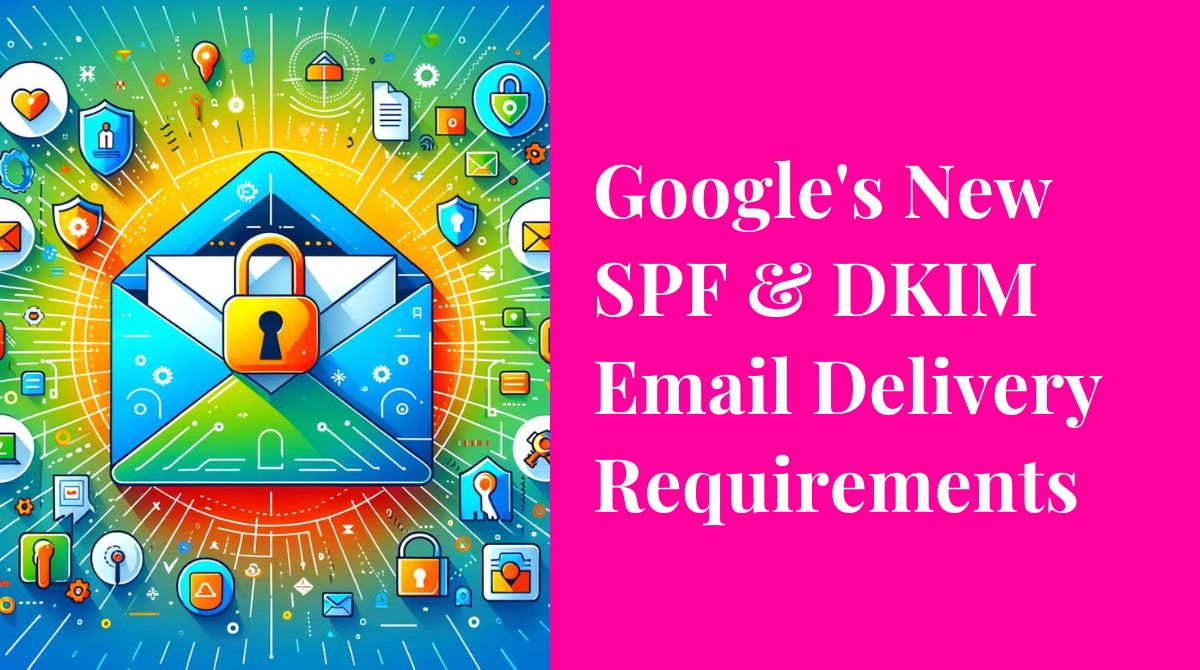Email communication remains a cornerstone of business operations and marketing strategies. To enhance security and improve deliverability, Google has introduced new requirements for Sender Policy Framework (SPF) and DomainKeys Identified Mail (DKIM).
These changes are designed to combat phishing and spam, ensuring that emails are safely delivered to their intended recipients. In this blog, we’ll explore what these new requirements entail, the potential consequences of non-compliance, and how businesses can effectively implement these changes.
What are SPF and DKIM?
Sender Policy Framework (SPF) and DomainKeys Identified Mail (DKIM) are email authentication methods that help protect email senders and recipients from spam, spoofing, and phishing. SPF allows email senders to define which IP addresses are allowed to send mail for a particular domain, while DKIM provides an encryption key and digital signature that verify that an email message was not forged or altered.
Google’s New Requirements
The updated requirements from Google mandate stricter implementations of SPF and DKIM. The goal is to enhance the authenticity of email communications, thus reducing the risk of malicious activities. These changes require:
- Tighter SPF Policies: Businesses must ensure that their SPF records are correctly set up to include all mail servers that send emails on their behalf.
- Stronger DKIM Signatures: The DKIM signatures must now use a 2048-bit key, upgrading from the previously acceptable 1024-bit, making it much harder for attackers to forge emails.
Implications of Non-Compliance
Failing to comply with these new requirements can have several repercussions:
- Increased Spam Flags: Emails that do not conform to the new SPF and DKIM standards are more likely to be flagged as spam, drastically reducing their chances of reaching the intended inbox.
- Loss of Sender Reputation: Continuous delivery of emails that fail authentication checks can harm an organization’s sender reputation, leading to long-term deliverability issues.
- Potential Legal and Security Risks: Non-compliance can expose a business to security threats like spoofing and phishing attacks, potentially leading to data breaches and legal challenges.
How to Ensure Compliance
- Review and Update SPF Records: Check your domain’s SPF record to ensure that it includes all IP addresses that are authorized to send mail on behalf of your domain. Remove any unnecessary or outdated entries to prevent spoofing.
- Upgrade DKIM Keys: Replace any 1024-bit DKIM keys with 2048-bit keys. Ensure that your email system is configured to sign messages with the upgraded keys.
- Regular Audits: Conduct regular audits of your email authentication practices to ensure ongoing compliance and adapt to future email security standards changes.
Implement These Changes As Soon As Possible!
Adopting Google’s new SPF and DKIM requirements is crucial for maintaining the integrity and deliverability of your business emails. While the process may require some initial setup and adjustment, the long-term benefits of enhanced security and improved email deliverability far outweigh the efforts. If you’re unsure about how to implement these changes, consider seeking professional help.
At Brady Mills Agency, we specialize in ensuring that our clients’ digital communications meet the highest standards of security and compliance. Contact us today to learn more about how we can help your business stay secure and compliant in a constantly evolving digital landscape.




